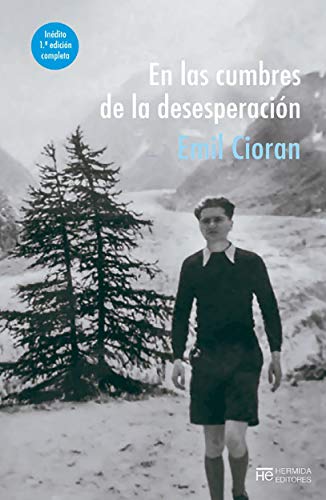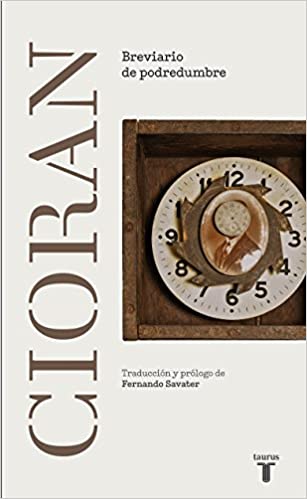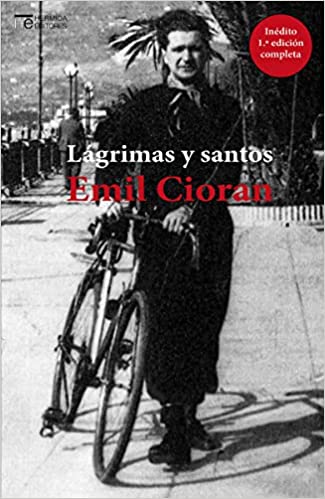No fully convinced pessimist reaches 84 years of age, as was the case with cioran. I say this because of the determination to point out this author as a recalcitrant nihilist whose negativity and fear for life make up in form and substance a narrative parallel to the condemnation of living. Posture? certainly not, but not a full conviction of the emptiness in his own soul. Something similar can be said, changing the third in a possible comparison, with a Bukowski given to vices and lacking in filters, but it also became old.
While the mark of Nietzsche it is undoubted in an author determined to undress miseries like Cioran, beneath its soulless story we can see a need for self-disappointment, a determination to try to discredit the axioms of a historical pessimism that in a blood-splattered XNUMXth century could have full justification, but on whose horizon there can always be found a dawn of a certain hope, acidic but hope nonetheless.
In my opinion, it could have happened that an intelligent and critical guy like Cioran indulged in that philosophical literature of provocation, the search for limits, the impenetrable aphorism, the call to destruction as a sign of total mistrust in the human.
But reading between the lines (when not in direct expressions), in Cioran we discover a guy who ends up valuing art and music as the only samples of human genius capable of flying over so many limitations, frustrations, fears and pettiness.
That was his horizon of hope, so it was surely worth living for him to continue, ranting with the foundations of everything and surrendering to the inextinguishable brightness of beauty, as a dazzling contrast to everything else.
Halfway between the philosopher (due to the depth of his writings) and the fiction writer (due to the lyric of his prose committed to formal recreation) and with some interesting references to Spanish and Russian as emblems of the defeat of being human, to read Cioran is to succumb to brilliant aphorisms, to deep contradictions of extreme lucidity and to enjoy with that natural pessimism of the human being that, after all, in a reduction between absurd and fundamental, lives to die.
3 recommended books by Emile Cioran
On the tops of despair
The book in which Cioran began to overturn that existential unease that began in his youth and that lasted throughout his life.
It happened to Cioran as soon as it did to Nietzsche, since both understood that intelligence was a condemnation when it was oriented, by endogenous conditioning factors, to try to discern the ultimate truths, naturally precipitated into the abyss of nothingness.
If he hadn't written this book, Cioran would have committed suicide, he argued. He was in his twenties and instead of focusing his impulses towards the most intense life of the physical, something led him to that dark sea of philosophical introspection, of the questions revealed by that maddening misfortune of transcendent lucidity.
The incipient thinker that Cioran was began with the most disturbing doubts, those that led him to the meaning of things, from the simplest movement to the most elaborate will. Thus, the book shows us the fears, madness and bitterness of existence with a serious and ruthless tone.
Breviary of Rot
If you dare to continue reading Cioran, perhaps it is good to lower the piston and enter a book of aphorisms, pessimistic sentences but that at least give rise to refutation, analysis, without those connotations of a more extensive narrative that ends up endowing of all kinds of arguments from the descriptive to the analytical, any of the ideas presented.
Cioran's aphorisms condense an old idea that Calderón de la Barca already expressed without going into more details: «the greater crime of the man is to have been born ». But of course, Cioran does go into details.
He is not a poet seeking lyrical improvement, but rather delights in the misery of living, in the dispensability of the human being. And appointment after appointment is composing in this book that tragic and disjointed ideology out of nowhere.
Of tears and of saints
The first thing that an intelligent mind that reaches its maturity of the first questions deals with is God. What is God? And the answers point to a desperate void that childhood could have filled in complement to the paternal and maternal figures (or perhaps in case their absence arose).
The skeptical man by nature needs to be so in that mixture of senses and reason. And Cioran's skepticism is concerned (once again in the history of philosophy, literature and art) with overthrowing the old myths and saints that instrumentalized fear and power, that annulled the being, so sheltered in divine figures. as unjustly lied about the crudeness and cruelty of a spiritually empty world.
In this book Cioran was inspired by the Spain heir to the Inquisition, rich in imaginary and religious imagery still absolutely current in his days.
From all this, the book ends up gutting everything to get out what little remains of soul, beliefs and old atavistic myths completely unworthy in modern man.




It seems to me an author to read with the self attentive and reflecting. Great teacher, complex and truthful.
Without a doubt, José, readings without waste.